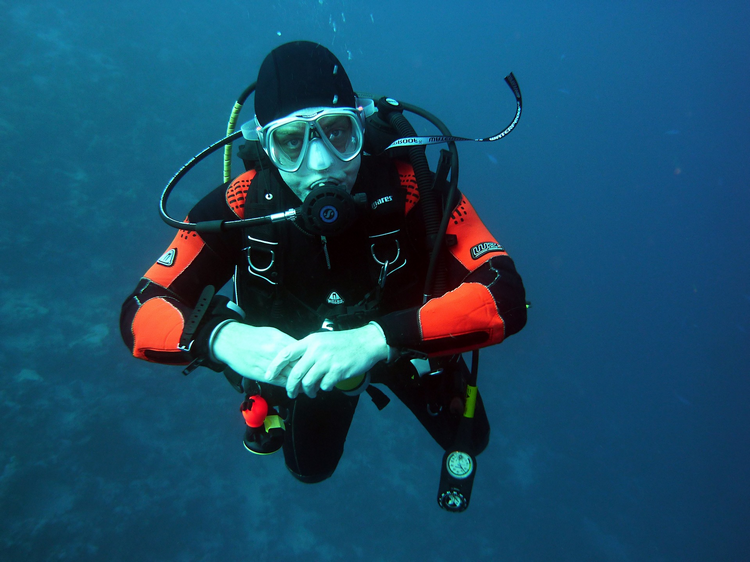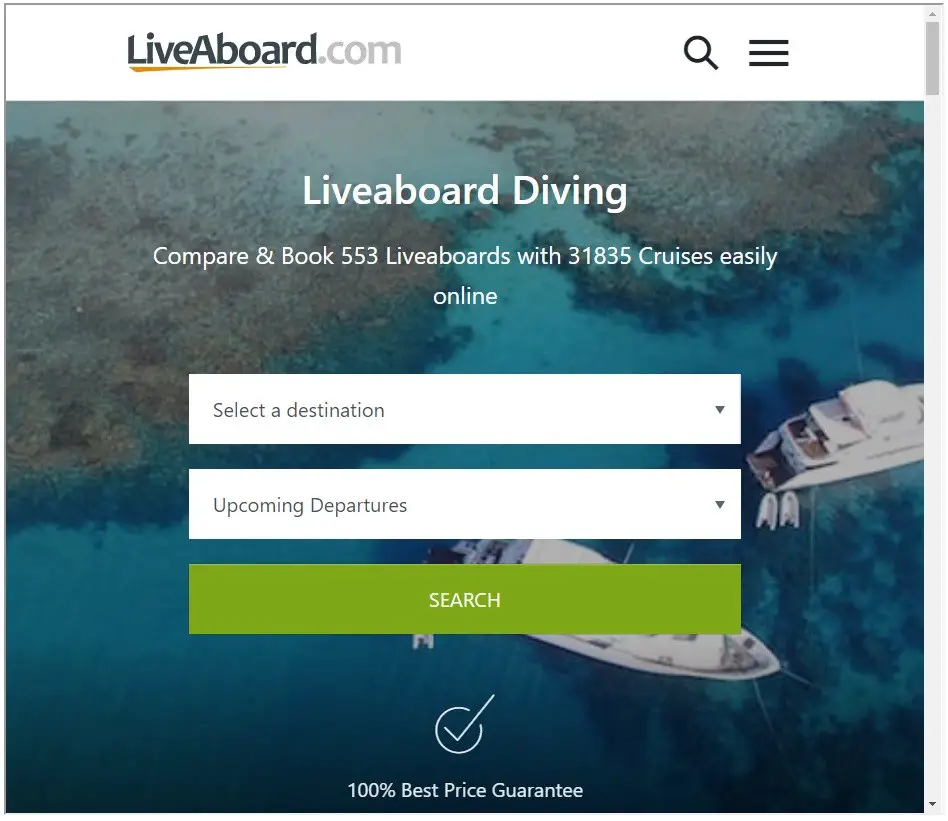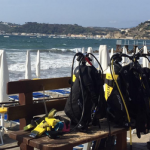
If you are looking into who cannot scuba dive to decide whether it’s a sport you can do yourself, this post is designed to look at all of the reason who can’t scuba dive. Include are hat medical conditions can stop you from scuba diving, along with other reasons.
The best way to do more diving is to book yourself on a scuba diving liveaboard. You can check the latest and best deals on liveaboards using the following window:
In this post I cover the following reasons why you may not be able to scuba dive:
- Too young to dive.
- Flying within 24 hours.
- Pregnancy.
- Disabilities.
- Asthma.
- Heart condition.
- Claustrophobia.
- You cannot swim.
- Not certified to scuba dive.
- Diabetes.
- Anxiety.
- Hypertension.
- Middle-ear equalisation.
- Sea sickness.
- Decompression sickness.
- Epilepsy.
The following table looks at each of the above reasons why you may not be able to scuba dive.
Who cannot scuba dive
| Reason you cannot dive | Why you cannot scuba dive | Comments | Articles to read and further thoughts | Resources |
|---|---|---|---|---|
| Can you scuba dive if you're too young? | Diving is a dangerous sport, which requires you have the maturity to be safe when scuba diving. | If you are less than 8, you'll simply have to wait until you're older when you can try diving and then at 10 you will be able to learn to dive properly. | Scuba Diving Depths For Kids: 5 to 16 years olds learn to dive | Maldives Liveaboard With Kids (Family Scuba Diving Holidays). |
| Can you scuba dive if your flying within 24 hours? | There is an increased risk of getting decompression sickness if you fly within 24 hours of diving. | Whilst some argue you can fly within 24 hours of scuba diving, why take the risk. To be safe, always wait 24 hours after your last dive before you get on a plane. | How long should you wait to fly after scuba diving? (What’s safe?) | Can You Dive And Fly On The Same Day? (How Long To Wait To Be Safe) |
| Can you scuba dive during pregnancy? | There is a risk to your unborn baby if you dive when pregnant, and although there is no significant research on this subject, it's not worth the risk. | Enjoy your pregnancy, look forward to your newborn baby, and look forward to returning to scuba diving once they are born. | Can You Scuba Dive If You Are Pregnant? (Will My Baby Be At Risk?) | SCUBA Diving in Pregnancy |
| Can you scuba dive with disabilities? | Whether or not you can scuba dive with your disability will depend on what disability you have. One of the difficulties with certain disabilities is getting into and out of the water, but this will depend on what disability you have. | Many people with disabilities can still scuba dive, so don't give up on the idea that you may still be able to go diving. | Scuba Diving With Disabilities (Can You Scuba Dive If You’re Disabled?) | Dive Ability |
| Can you scuba dive if you have asthma? | If you have a severe case of asthma, your doctor will advise you against diving. Asthma affects the airways and makes them inflamed and susceptible to irritation, which makes scuba diving dangerous. Asthma attacks will tighten the muscles around your airway and constrict the airflow to the point where you can barely breathe, not ideal for an underwater environment. | Prospective scuba divers with asthma should undergo both an assessment of lung function and an exercise test to gauge asthma severity. In the UK people whose asthma is well controlled may dive, provided they have not needed a bronchodilator within 48 hours. But in Australia all divers are expected to pass a spirometry (lung function) test to rule out asthma prior to scuba diver certification. | Consult your doctor in the first instance, and then check the rules for scuba diving with asthma in the country where you intend to dive. | DAN - Asthma Implications in Diving |
| Can you scuba dive if you have a heart condition? | Recreational scuba diving may look like a low intensity sport, but it can be demanding, especially if you experience currents and cold water temperatures. Certain conditions can quickly accelerate a leisurely sport into a high intensity experience, which may put too high a load on your heart if you have a heart condition. | According to the American College of Cardiology, in a well-controlled environment (warm water, no wind or current), an individual with coronary disease and good left ventricular function could dive safely with no more than 4 .mets of energy expenditure. But before you even consider scuba diving if you have a heart condition, seek advice from your doctor. | How Does Scuba Diving Burn Calories (Is Scuba Diving A Good Work Out?) | Divers and Coronary Disease |
| Can you scuba dive if you are claustrophobic? | Severe claustrophobia is more likely to be a contraindication to scuba diving, which can be as simple as an aversion to wearing a mask. But your claustrophobia would get worse if you were to go inside a wreck or a cave. | There is no reason why you can't scuba dive if you are claustrophobic, as it's possible to overcome your phobia - see resources section. Plus you can avoid any claustrophobic environments too. | Scuba Diving Claustrophobia (12 Tips on How To Overcome Scuba Diving Anxiety) | The PanicMiracle is the only clinically proven drug free holistic system for treating panic attacks and general anxiety. PanicMiracle |
| Can you scuba dive if you can't swim? | If you cannot swim, it would be unsafe to try scuba diving, and in any event you need to be able to swim before you learn to scuba dive. | Learning to swim is easy and fun, and if it means you'll be able to enjoy scuba diving, then why not book in for some swimming lessons? | Can You Scuba Dive Without Knowing How to Swim (Is it Safe?) | Learn to Swim |
| Can you scuba dive if you're not certified? | Scuba diving is classed as a dangerous sport, and for good reason. Which means if you are not a certified scuba diver you should not dive, as you would not be aware of the risks involved with scuba diving. | Learning to scuba dive is fun and very easy for most people. So why not book yourself onto a diving course near you, or book a holiday and learn to dive on holiday. | Is It Illegal To Dive Without Certification? (Is It Legal To Dive Alone?) | 10 Top Safety Tips For Scuba Diving (Making Scuba Safe) |
| Can you scuba dive if you have diabetes? | The symptoms relating to diabetes from severe hypoglycaemia include seizure and loss of consciousness, which are likely to be fatal if experienced underwater. Also, there are no reliable ways to take a rest whilst scuba diving either. | Diabetes can be progressive, and such progression may increase your risk while diving, so you should consult your doctor before you even think about scuba diving. | Signs and symptoms associated with hypo- or hyperglycemia can be due to other medical conditions. These include hypothermia, nausea from seasickness and possibly decompression sickness, which may confuse what is actually happening and be dangerous to you. | Diabetes and Diving |
| Can you scuba dive if you have anxiety? | Having an anxiety attack underwater would be unsafe and could lead to problems for you and your dive buddy. | There are many ways to treat anxiety and to overcome the problems it causes for you. | How To Overcome Panic When Scuba Diving (Tips To Prevent Panic Attacks) | The PanicMiracle is the only clinically proven drug free holistic system for treating panic attacks and general anxiety. PanicMiracle |
| Can you scuba dive if you have hypertension? | Hypertension or high blood pressure is not necessarily a contraindication for scuba diving, but you should seek medical advice from your doctor before you dive. | With the correct medication, you may be able to scuba dive with Hypertension, subject to how the side-affects impact on you underwater. | The reason why hypertension is a risk to scuba divers is because of the detrimental effects of the disease, which include the possibility of heart failure, coronary artery disease and stroke. All of these are a contraindication for scuba diving. | Hypertension according to Divert's Alert Network (DAN). |
| Can you scuba dive if you have middle ear problems? | If you are not able to equalise your middle-ear when scuba diving, which is something you have to do on your decent and ascent on a dive, you will not be able to scuba dive. | If you are able to descend on a dive by carefully equalising your ears slowly, diving can improve the problem. But always be careful and never force a descent, as you may suffer an eardrum rupture. You should never experience pain in your ears on a descent, if you do, you have gone to far without equalising your middle-ear. | How To Equalize Ears When Scuba Diving Like A Pro (+20 Tips To Help) | Middle-Ear Equalization according to DAN. |
| Can you scuba dive if you get seasickness? | Whilst sea sickness isn't necessarily a contraindication to scuba diving, it can make for an unpleasant experience when scuba diving on a boat. | If you suffer from sea sickness, you can take medication to help with the problem, but if you don't want to do this you may have to only dive from the shore. | If you decide to take medication for sea sickness, consider the side effects. These can include extreme drowsiness. | Motion Sickness according to DAN. |
| Can you scuba dive if you've had Decompression sickness? | If you have had decompression sickness before, you need to be careful before going back to diving. If you had severe neurological symptoms or have any residual symptoms, you should not return to diving. | Always consult your doctor before returning to scuba diving if you have suffered from decompression sickness. | What are the signs and symptoms of decompression sickness? | 14 Decompression Sickness Risk Factors In Scuba Diving and How to Avoid Them |
| Can you scuba dive if you have epilepsy? | Scuba diving is not recommended for people who have epilepsy due to the risks posed by having a seizure underwater. An epilepsy episode underwater could be life-threatening for the person having the seizure, but this may also put the life of their dive buddy at risk too. | Always consult your doctor about any serious medical condition. | Epilepsy Society and swimming and water sports | Epilepsy advice |

I hope you enjoyed this article about who cannot scuba dive
I’d love to hear from you. Tell us about your adventures of diving and snorkeling, in the comments below. Please also share your photos. Either from your underwater cameras or videos from your waterproof go-pro’s!
If this article hasn’t answered all of your questions. If you have more questions either about snorkeling or scuba diving (or specifically about who cannot scuba dive), please comment below with your questions.
There will also be many more articles about scuba and scuba diving safety tips (and on snorkeling too) for you to read and learn about this fabulous sport.
Have fun and be safe!




